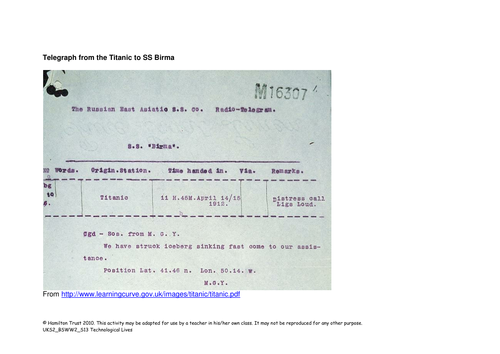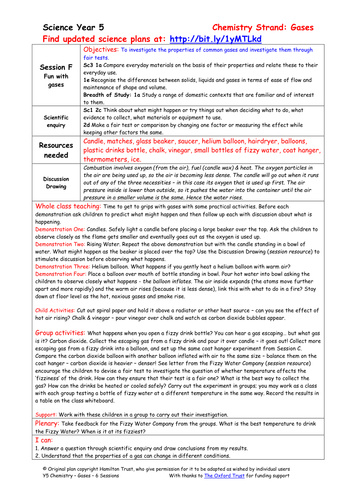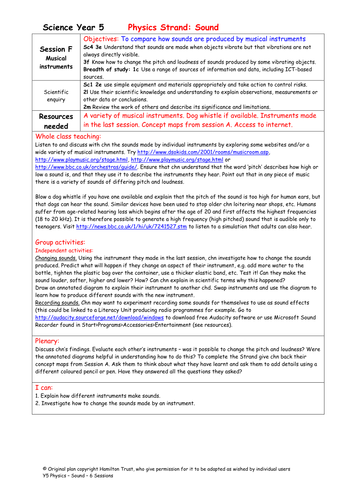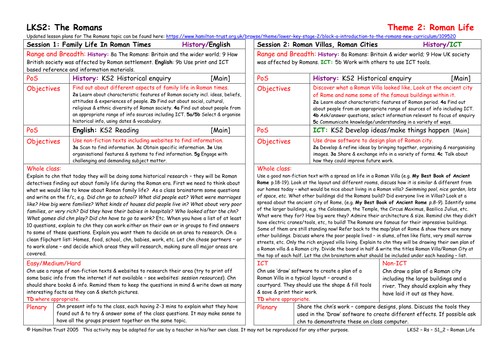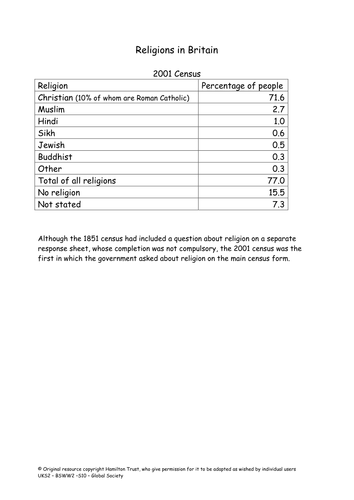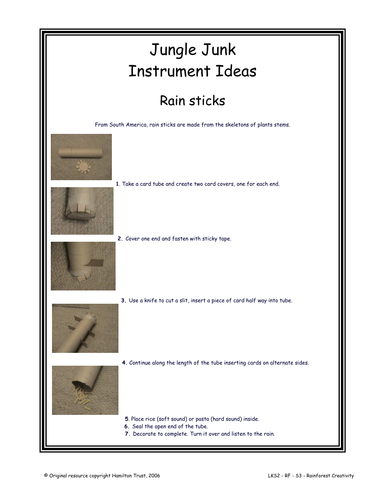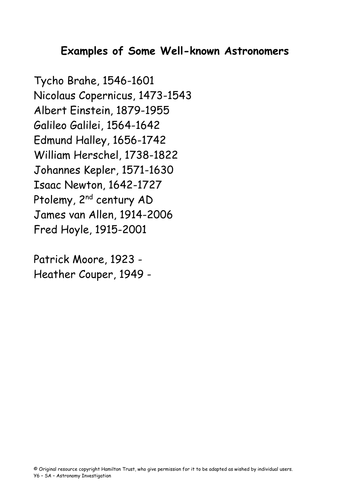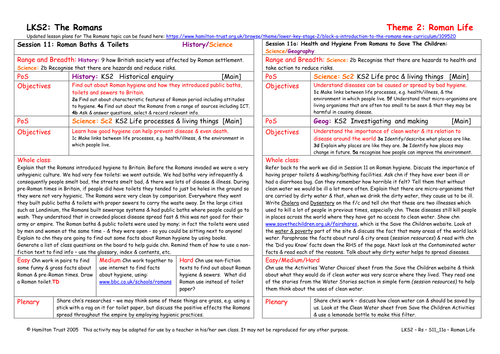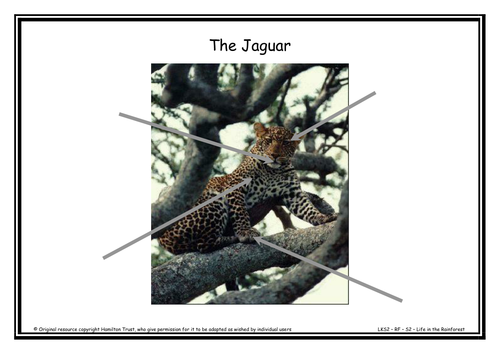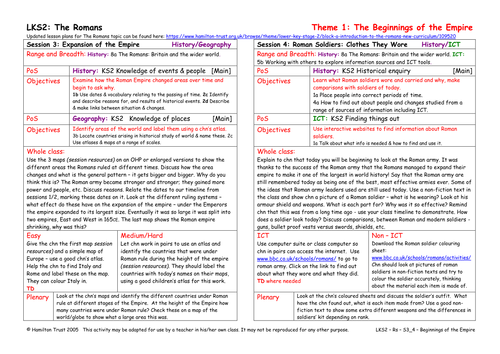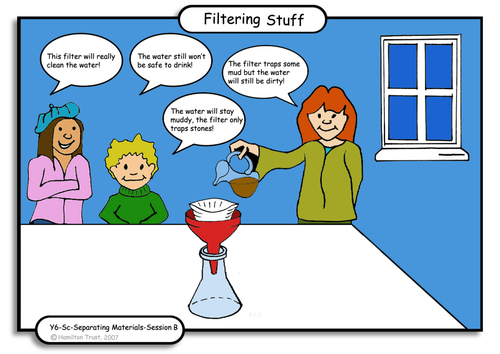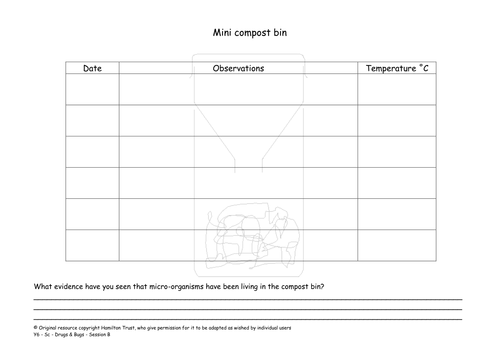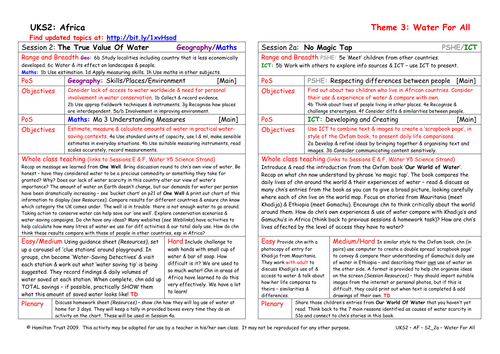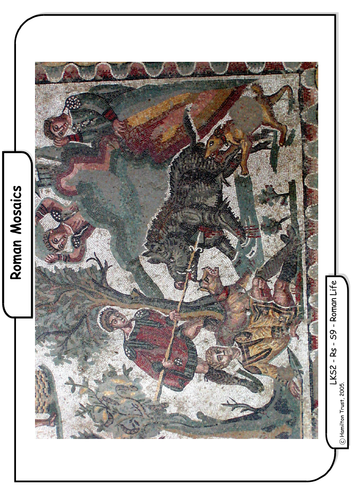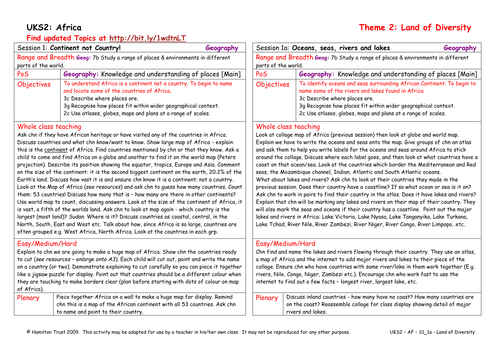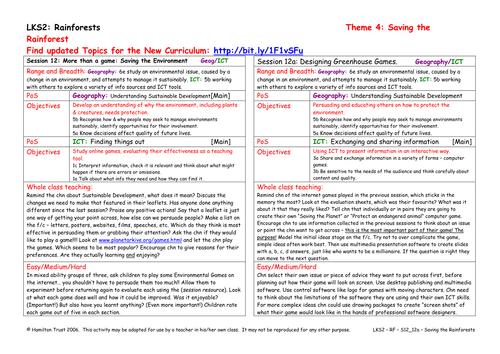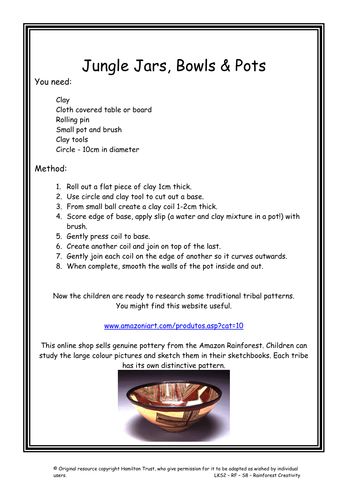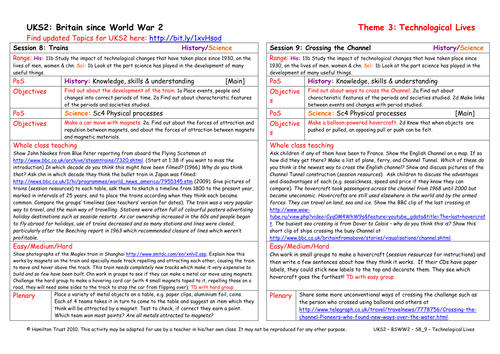
397Uploads
10041k+Views
11644k+Downloads
All resources

Telegrams
Children look at old telegrams and then write their own about an important event to the British Prime Minister of the day.

Teaching Presentation: Tell time to nearest minute: am/pm ( Year 4 Measures and Data )
This presentation provides three days of teaching that cover the objectives:
Telling time to nearest minute; am and pm
It includes starter activities, whole class teaching, group activities, practice sheets and mastery questions. It can be used on a variety of interactive whiteboards.
Day 1 Teaching
Launch ITP Tell the time. Recap telling the time by moving the minute hand around clock at 5-minute intervals. Establish that there are 5 divisions between the numbers, each of which represents 1 minute. Count marks with children to tell time to the minute. Distinguish am and pm as morning and afternoon/evening.
Day 2 Teaching
Imagine school started 40 mins later. Find all the activity times, now 40 mins later, crossing the hour as necessary. Record times in both analogue and digital times, and work out time intervals.
Day 3 Teaching
Show children that to calculate time intervals, we can use Frog to find the difference between times like finding a difference between 2 numbers on a number line. Model finding time intervals using Frog, crossing the hour, using both analogue and digital clocks.
This teaching is part of Hamilton’s Year 4 Measures and Data block. Each Hamilton maths block contains a complete set of planning and resources to teach a term’s worth of objectives for one of the National Curriculum for England’s maths areas.

We Are Britain
We all have at least one thing in common – we live in Britain! Chn meet lots of different chn from all over the UK courtesy of We are Britain by B. Zephaniah. They see people move around the UK & other countries é they think about their own histories.
Suitable for Years 1 é 2.

Fun with gases
Candles burn, water fizzes, paper swirls spin and chalk gets dropped in vinegar in this practical session. Children then answer the call of the Fizzy Water company to find out if their water is fizzier ice cold! Suitable for Y5 pupils.

Musical instruments
Listen to a variety of musical instruments and investigate how they make sounds in more detail. Explain how to change the pitch and loudness of instruments made in session E and then try out each other’s instruments. Discuss what children have learnt during Strand.
Suitable for Y5 pupils.

Family Life In Roman Times
This session begins some work on family life in the Roman Empire. Children prepare for, and then carry out their own research. Each group picks an aspect of family life and then use the internet as well as books and information sheets to find out some facts.
Suitable for years 3 and 4.

Multi-Faith Britain
One of the important changes in British society since WW2 has been the rise in numbers of people with different religious beliefs. Christianity remains the main religion. Investigate the main religions that are now practised in Britain and create display.

Jungle Junk
Listen to the Rhythm of the Rainforest in this session! Children start by studying the Baka people who live in the African Rainforests, looking in detail at their instruments. Children then create simple instruments of their own using junk modelling techniques.

Stars and Moon
Find out about stars and how they are grouped into constellations, despite being a long way from each other. Make a simple telescope to study the stars and a planisphere to identify them. Study the phases and apparent movement of the moon.
Suitable for Y6 pupils.

Roman Baths & Toilets
In this session children look at how the Romans improved hygiene arrangements across the empire by providing clean water and drains for sewage. Children investigate Roman toilets and baths, and discuss the positive effects of these innovations.
Suitable for years 3 and 4.

Adaptations of life in the Rainforest
The rainforest ecosystem is one of the oldest on the planet. Animals living there have adapted to suit their habitat. Children find out more about animals who use camouflage, sharp claws, long beaks or tails to survive in the jungle.
Suitable for years 3 and 4.

Expansion of the Empire
Children look at how the Roman Empire expanded over a period of 400 years and then began to diminish in extent. They relate this to the systems of government identified in Session 2. They map the Roman Empire on today’s world map, identifying countries.
Suitable for years 3 and 4.

Filtering
Things become clearer in this session as children find out that some materials are insoluble creating mixtures when added to water. Children create their own filters to purify water but will it be safe to drink?
Suitable for Y6 pupils.

Green micro-organisms
Micro-organisms can be beneficial and in this session children explore their role in compost production.
Find out why it’s important to compost and what can be composted. Make mini compost heaps, look at food chains and create a compost heap story for younger children.

The True Value of Water
The global well is in trouble – not enough water to go around. Take action to conserve water! Children use ‘clue stations’ to discover water-saving tips, working out how much water they would save. They are set homework to log water use at home over 3 days.
Suitable for years 5 and 6.

Researching Roman mosaics
Children research the internet and non-fiction texts and look for information about Roman mosaics. They talk about the images that Romans used in creating these, and then use a software package to create their own mosaics. Some chn do further research.
Suitable for years 3 and 4.

Continent Not Country!
Children look closely at the continent of Africa. They recognise that it is a huge and diverse land with many different countries and widely varying landscapes and climates. They take 1/2 countries each and create a huge collage-map of Africa.
Suitable for years 5 and 6.

Designing Greenhouse Games
In this session children apply what they found out in the previous session about internet games to create their own Saving the Planet computer game. Whose will be most enjoyable? Which game will encourage us to do things differently?

Jungle Jars, Bowls and Pots
In this session children take a look at typical examples of pots created by peoples of the Rainforests. They study the differences in pattern and decoration before creating their own pot from clay and decorating it.

Trains
Children look at trains from different ages, then try to make a moving vehicle using magnets, then have a competition involving choosing magnetic metal objects.

